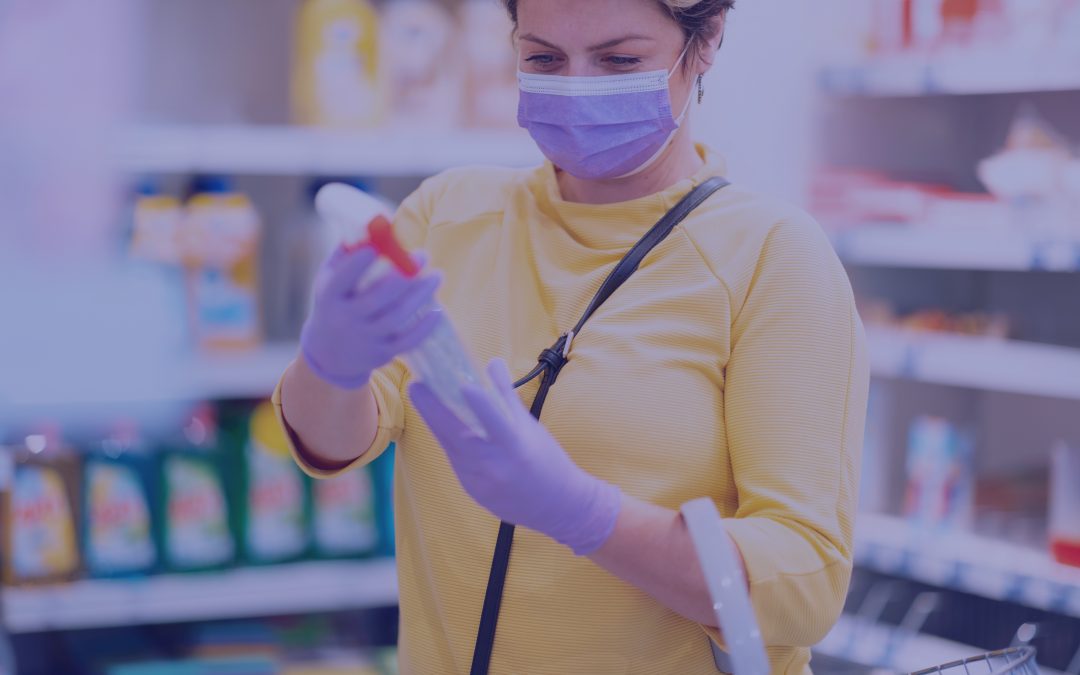Innova is assessing consumer attitudes and responses in key markets around the world to help you understand what the impacts could be for your business. Our survey has explored attitudes to COVID-19 including:
- how at risk people feel;
- what they see as the most significant impacts of the crisis;
- how lifestyles are being affected;
- how the situation is leading to changes in attitudes and purchasing behavior in relation to food and beverages as well as household and personal care categories.
Here we highlight some of the insights we have discovered so far.
| Consumers in European countries are currently most likely to expect the situation regarding COVID-19 to get much worse in the coming months than those in the other countries surveyed. |

We see that expectations for the situation to worsen a lot appear to correlate, to some extent, with where countries are on the curve in terms of recorded cases of infections. Despite Germany’s relatively low death rate compared to the number of infections,1 consumers there are still largely in line with other European countries with higher death rates in terms of expecting the situation to worsen a lot (43%). US consumers are less likely to fear the situation will worsen a lot (36%) than consumers in Europe, especially in the UK (49%).
No doubt factors such as the tone of media coverage, perceived effectiveness of government intervention and overall trust in approach to the crisis in terms of health and economic actions as well as confidence in healthcare systems to deal with the outbreak and cultural factors play a part in how people are feeling. Consumers in Brazil and India where COVID-19 infections are lower at this time, are currently less likely to see the situation getting a lot worse though this could change.
People’s perception of how bad the situation is, and the likelihood that it will worsen, clearly has an impact on consumer sentiment and ultimately purchasing behavior. Sentiment could turn around quickly if effective treatments are found and as infections start to flatten out as we are starting to see in China and South Korea. Nevertheless, the threat of a resurgence of infections after a flattening out remains a concern.
| Consumers in Germany and France are less concerned about the impact of COVID-19 on their mental health than those in the other countries surveyed. |

Within the UK, 4 in 10 consumers claim to be concerned about the impact of COVID-19 on their mental health which is a similar proportion to consumers in India and Brazil, while 1 in 3 US consumers claim to be concerned compared to around 1 in 4 in Germany and France.
Prior to the COVID-19 pandemic, we were seeing greater attention paid to the importance of mental and emotional wellbeing both individually and in society as a whole. Anxiety about the health risks, disruption to daily lives and financial uncertainty being created by the current health crisis is likely to bring even greater focus onto this as people seek ways to cope and support one another.
| Consumers are shopping online for groceries more as a result of the COVID-19 situation though this is less pronounced in the European countries surveyed. |

Over 4 in 10 consumers in India and Brazil claim to be buying more of their groceries online as a result of the COVD-19 situation. India went into an enforced lockdown on the 24th of March,2 which could be a factor in the relatively high proportion of people claiming to be buying groceries online as shoppers get to grips with new restrictions.
While Brazil still has relatively low numbers of reported infections, and is not in national lockdown, governors in the states of Rio de Janeiro and São Paulo are reportedly starting to impose restrictions in defiance of President Bolsonaro.3 This could be a factor in driving consumers to online shopping.
In the US, 1 in 3 consumers claim to be buying more groceries online compared to 1 in 5 in Germany. As high demand for home deliveries leads to longer waiting times for delivery slots, online shopping as an option often becomes more limited, so people will be balancing this with going in-store to get the groceries they need.
Sources
- Bostock B. Germany has a remarkably low coronavirus death rate — thanks largely to mass testing, but also culture, luck, and an impressive healthcare system. Business Insider France (Mar 2020) https://www.businessinsider.fr/us/germany-why-coronavirus-death-rate-lower-italy-spain-test-healthcare-2020-3
- Bisht A. Chaos and hunger amid India coronavirus lockdown. Aljazeera (Mar 2020) https://www.aljazeera.com/news/2020/03/chaos-hunger-india-coronavirus-lockdown-200327094522268.html
- Friedman U. The Coronavirus-Denial Movement Now Has a Leader. The Atlantic (Mar 2020) https://www.theatlantic.com/politics/archive/2020/03/bolsonaro-coronavirus-denial-brazil-trump/608926/





